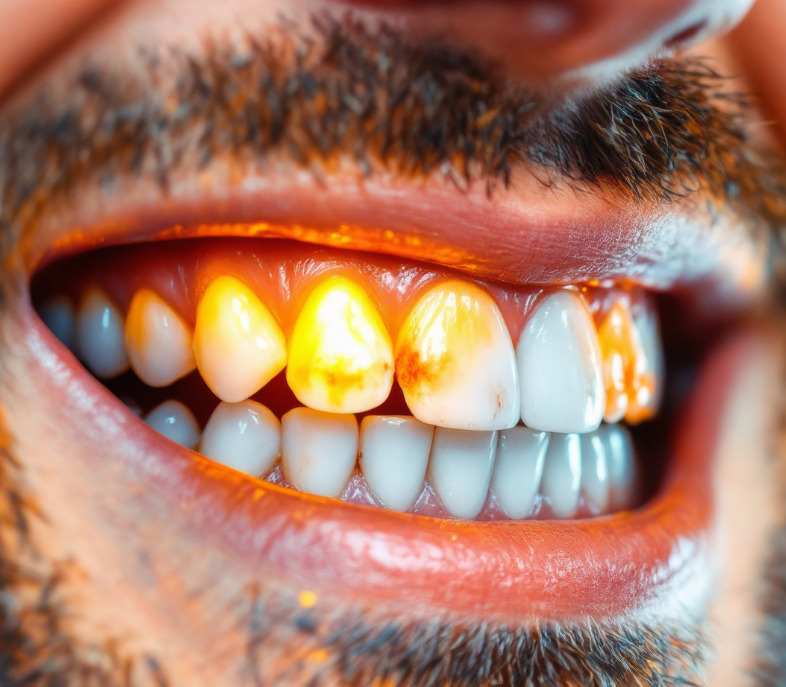Teeth Grinding

Under normal circumstances, your teeth should only contact for about 5 minutes each day. Normal chewing results in brief intervals of contact between enamel surfaces, the hardest substance in the human body. Slight amounts of wear over years of function frequently occur, and bite edges can chip a little. But these durable surfaces should wear at nearly undetectable rates.
Experience how Dr. Robeck can help you discover your perfect smile.

Sometimes teeth develop a flattened, worn appearance, even in young patients. And x-rays may demonstrate unusually thin layers of enamel as if sandpaper has been drawn across the chewing surfaces of the teeth. A few minutes of chewing daily simply shouldn’t erode the enamel so much.
Experience how Dr. Robeck can help you discover your perfect smile.
You Don't Even Know
Some patients develop a subconscious habit of grinding their teeth, either during the day or night. In many cases, the abrasive action occurs only during sleep, and for only a few seconds at a time. If you wake up with a sore jaw or a morning headache, chances run high you’re grinding your teeth during the night. In some patients, enlarged jaw muscles develop on the sides of the face from the extra activity. These muscles can be the strongest in the body, ounce for ounce. That means they can generate a lot of unnecessary damage.
The unusual activity not only wears down teeth and strains the overworked muscles. The compressive forces can also damage the intricate jaw joints on one or both sides. Damage to the joints may lead to arthritic changes, chronic pain, and popping or clicking. Once these changes settle in, reversing their condition may become impossible.


Avoiding Irreversible Damage
If you’re waking up with a sore jaw or headaches, or you’ve noticed chips or flattening of your teeth, a consult with Dr. Robeck should be on your list. The sooner the problem receives attention, the less damage there will be. Often a carefully calibrated night guard with a distinct bite relationship built in will eliminate the symptoms while protecting your precious enamel.
Daytime habits of clenching or grinding deserve attention, and strategies to reduce the problem may be developed. We’ll also analyze the current relationship between your teeth to make sure they’re moving against each other optimally when you chew. Regardless of the cause, eliminating the strain on the jaw and your teeth as quickly as possible can save you many problems as time goes on.
Frequently Asked Questions
What causes teeth grinding?
Teeth grinding—also known as bruxism—can be caused by stress, anxiety, misaligned teeth, sleep disorders, or even certain medications. Many people grind their teeth at night without realizing it until symptoms or damage appear.
What are the signs that I might be grinding my teeth?
Common signs include jaw pain, headaches (especially in the morning), worn or chipped teeth, tooth sensitivity, or even clicking sounds in the jaw. If you’re waking up with discomfort or notice flattening of your teeth, it’s worth getting evaluated.
How can Robeck Dental help with teeth grinding?
We often recommend a custom night guard—a comfortable, protective appliance worn while you sleep. It cushions your teeth and prevents further wear and damage, helping relieve tension in the jaw and reduce painful symptoms over time.
What happens if teeth grinding is left untreated?
Without treatment, bruxism can lead to serious problems like cracked teeth, gum recession, TMJ disorders, and chronic pain. Early intervention helps protect your teeth, preserve your bite, and prevent the need for more extensive dental work in the future.
